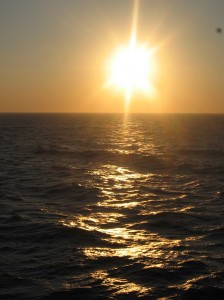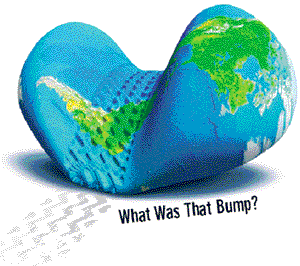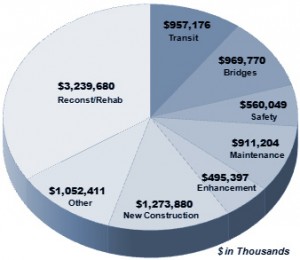Much to the chagrin of their preferred stockholders The New York Times Atlantic Monthly Flagpole Magazine has seen fit to publish a variant of the musings on this site in a column, called Eco Hustle and to be renewed each fortnight. The first one is here. Welcome Flagpole readers.
Flagpole
Much to the chagrin of their preferred stockholders The New York Times Atlantic Monthly Flagpole Magazine has seen fit to publish a variant of the musings on this site in a column, called Eco Hustle and to be renewed each fortnight. The first one is here. Welcome Flagpole readers.
Clean the water, fight the power
As a country we’ve made a living bragging about how ambitious we are, how audacious our concepts of freedom, liberty and happiness are as to make their fulfillment just a matter of conquering a lesser will.
Well, here’s the way to defuse most every geopolitical conflict for the next century or so, at least until things even out and Republicans can get elected again and start whining about socialism or how unjust their tax burden is. Cheap desalination powered with clean energy is the key to making the fossil fuels conundrum exit stage left. As the article points out hese are massive public works projects with very sophisticated interactions with the natural environment; The question is not will they work, but do we have the will to make them work.
In the speech by House Majority Leader Nancy Pelosi yesterday that had all the Republican house members whining and crying with hurt feelings, she recalled that people around the world constantly tell her that the greatest emerging market in the world is rebuilding the public infrastructure of the United States of America. She said it could be done in a fiscally responsible manner. Even with only what we know how to do right now, it could also be done in a highly innovative manner, geared toward sustainably shifting our transportation and land-use conventions in the permanent direction of clean water and low-carbon power.
Building a green house isn’t green, but takes a lot of green. The reviewer says it at the end:
Maybe the real meaning of being green is closer to what modest Kermit had in mind: learning to make the best of what we already have rather than having to create, spend and construct something “eco-friendlier.”
Yes it is. One household living off the grid does not a difference make; we need to get the grid off the grid. Meanwhile, live close to work, know where your food comes from, spend and buy accordingly.
A place to start
We already have experience with this, if we thought about it. The way we close military bases, for example, is an orderly, deliberative process that recognizes obsolescence in the system and gives expression to eliminating it. Some stakeholders yell and scream, but calm prevails as we reconcile resources and needs. It is and should be a constant re-alignment. These bases are usually re-purposed to our advantage. A Navy Supply Corps School in our town is going to eventually become a medical school. So re-casting other obsolete elements in our society isn’t such a unthinkable prospect, only a matter of acknowledging the disconnect between original intent and present/future needs and opportunity costs. Imagine how powerful it might feel to begin abandoning a few roads here and there.
And speaking of power, there is a not-insignificant degree of helplessness wound around our dependence on extra-territorially derived transportation fuel, aka foreign oil. Well, throw your weight around. Saudi Arabia believes that $100/barrel oil is too high; meanwhile countries with more shallow reserves want to get as much for their oil as they can while it lasts. Why this disconnect? Long-term demand. The House of Saud knows high prices are tamping it down and are concerned with the many alternatives at our disposal. They’re actually afraid we might start walking to work or to the grocery, much less all the consequences that will spin out beyond that.
The winners and honorable mentions of the Science magazine and NSF sixth annual International Science and Engineering visualization challenge. Note the lack of irony in the remark from panel of finalist judges member Malvina Martin: “I remember studying very basic cell biology and being bored to death, but the fact that it was an interactive computer game you could get your hands on and see direct results of too much sun and not enough sun was very pertinent in this day and age when folks are so far removed from the plant and the planet.”
Not this
Perchlorate is a toxin; the term itself is a shorthand reference to potassium perchlorate and ammonium perchlorate. The EPA is a government agency tasked with protecting the environment, thus the name being more than mere semantic parry. Efforts to address widespread contamination of ground and ground water by perchlorate have led to the development of some very innovative methods (phytoremediation) that have opened onto a better understanding of how to address a host of complex and seemingly irreversible environmental threats, including biological dead zones that appear in ponds and lakes when contaminant levels surpass a tipping point.
Now the EPA has devised a clever way around the questions of how to regulate, clean up and hold guilty the parties (hint: a shape with five sides) responsible – they will simply refuse to say how much is too much.
Genius. Oh, and then others in the know are apparently shocked at the continued rapid rise in greenhouse gases. The PRC ordered up blue skies for the Olympics; now they’re back off the wagon and the skies are again cloudy all day.
I doze in the mornings and am awakened at night by the elusive question, what we are doing? And then, after a while they come to me, some words of others, ostensibly about a whole other thing. In this case, John Ruskin, in his essay on architecture, The Stones of Venice:
It is not, therefore, that the signs of his affections, which man leaves upon his work, are indeed more ennobling than the signs of his intelligence; but it is the balance of both whose expression we need, and the signs of the government of them all by Conscience; and Discretion, the daughter of Conscience. So, then, the intelligent part of man being eminently, if not chiefly, displayed in the structure of his work, his affectionate part is to be shown in its decoration; and, that decoration may be indeed lovely, two things are needed: first, that the affections be vivid and honestly shown; secondly, that they be fixed on the right things.
Shoulders of giants… they look like ants from here.
Image of Zinc Oxide nano ribbons reproduced with permission.
the Illusion of Choice
Stuffed: Obesity is the second leading cause of preventable death in the United States, and over 60 percent of us are considered overweight. Starved: Worldwide, nearly a billion people are starving to death, and 35 million Americans went hungry at some point last year.
“We cannot shop our way to a better world,” thus spake Raj Patel, former WTO official and author of the book Stuffed and Starved, which tells the tale of the global food system.
All sorts of choice bits in a podcast of his interview with Dan Imhoff of the Commonwealth Club. To wit:
Is Coke or Pepsi actually an example of free choice?
Instead of our food being made for us – how we are being made for our food.
What is the convenience of food?
Only 3 out of 10 Americans have a normal body weight. 35.5 million Americans went hungry in 2006, though the USDA no longer permits itself to use the word hungry, and instead refers to such people as suffering from food insecurity.
Why fertilizer bombs?
It’s a lot of gloom but he also talks about Agro-Ecological alternatives, the three sisters – squash, beans and maize – and how they replenish the environment as opposed to the way conventional farming methods destroy it and then need to build it up again from scratch. Also, this stuck out at me – In the 2000 years before the British came to India, there had been one famine approximately every 120 years; after the British arrived, and reformed the feudal agricultural system they found, there was a famine every 4 years. Patel explains what the creation of markets had to do with this.
Think small, live large.
The ultimate in fusion
The ultimate in fusion
Oh, that
So there’s all this talk about a so-called brain train (no trademark – no need) connecting our little college burg with the big city. Living in Lower America, you often get the feeling that you’re on the front lines of the culture wars.* And with public transit, it is no different. The reality of SUPER TRAINS blasting across the region is as much a foreign concept as having your passport or speaking a second language. This BT’s only currency whatsoever is as a football that gets booted around occasionally, but it’s going nowhere, and until it begins to get brought out to tailgate at the big home games (stay with me), it’s not going anywhere. We will simply continue to spend inordinate amounts on new road construction, sit in traffic, listening to oldies or talk radio, getting angry and resentful about the wrong things. It is a massive example of our stupid. Ouch. Stove… Hot!
If the intertubes is so special and all, why are hundreds of thousands of people still driving into downtown ATL everyday? They’re not making anything, per se. What is it, to attend productivity meetings?
There are things to get angry and resentful about. Consider:
This is the State Transportation Improvement Program funds in Georgia by category for 2008 – 2011.
Financial summary here. Caution: Need to distinguish between billions and millions.
Building trains, tracks and stations is expensive. No argument there.
But what we have now is very expensive and it’s bad economic policy, bad environmental policy and bad social policy that has resulted in a host of perfectly foreseeable crises, not the least of which is that we’re running out gas to drive the cars on the roads. I’m somehow sure that we will be at the midpoint of blacktopping some new four-lane when the very last barrel of oil is pumped from the ground.
* said front-line proximity may contribute to good art making.
‘bump’ image reproduced from a Sierra Club website with permission of the Sierra Club.
Whigs and makeup
One reason it might be difficult to talk about living more simply without getting wrapped up in the current financial meltdown is that they are not… unconnected. The problems of how we might go about shifting toward greater sustainability is writ small against the massive color backdrop of the shift itself. There is no alternative. The massively wasteful infrastructure that was required to make the whole thing go has overshot its own projections. In that way the correction previously discussed arrives disguised in the collapse of the financial system on which it was constructed, i.e., not disguised at all. Attend:
cheap gas… interstates… suburbs… exurbs… over-development… excess housing capacity… over-priced real estate… not-so-cheap gas… mortgage defaults… bankruptcies… bank failures… market crashes. All of this has a symbiosis with long commutes, abandoning cities, demonizing conservation, castigating high taxes, government generally and its attendant accomplishments and regulations. Results: crumbling infrastructure, no public transit or other public works mechanisms (indeed, an open hatred for them) to combat the elevated levels of fuel prices, carbon dioxide, global warming and national security fears brought about by the long-chain addiction to a product we do not make; no jobs to drive to from houses we cannot afford. Bonuses: Long commutes enabled talk radio to manufacture rage against fictitious villains and domestic enemies, rage which allowed the responsible parties to evade responsibility for longer than should have been possible.
Reality will not be mocked, apparently. A government lies its way into a war at its peril. A society hinges its future on a few very finite resources, beneath the staggeringly presumptuous banner of Pax Americana… and it designs the ultimate payback for its hubris.
Kunstler, who watches these things closely, pens a timely diddy:
Any way you paint this grotesque panorama, it looks like a very new chapter of history for life in the USA. Basically, we are a much poorer nation than we were even a couple of years ago, and we have a much-reduced ability to project our will around the world, or even among our own floundering sectors and regions. Most troubling to me is the question of legitimacy that now hangs over the proscenium like a guillotine blade. Factoring in the old saw that history doesn’t repeat but it rhymes, I think the situation emerging is rather like the crisis of legitimacy that preceded the Civil War. Then, in the 1850s, the nation’s two symbiotic political parties, Whig and Democrat, entered a zone of fatal discredit. The White House had been occupied by a sequence of empty cravats named Fillmore, Pierce, and Buchanan, and so much pent-up mistrust roiled the centers of power that the nation entered a convulsion.
…
The Republican Party amounts to today’s Whigs. Their candidate for president, John McCain, is trying to run away from his own party — as one might shrink away from a colony of importuning lepers. I am actually not kidding when I label the Republicans “the party that wrecked America,” because I believe that is truly how the popular strain of history will regard them when (maybe if) the wreckage of their ministrations ever clears. But history doesn’t repeat exactly. The current figure from Illinois, Barrack Obama, has yet to offer a truly crisis-clarfying rhetoric, though he labors under the expectation of being able to do so. Like his long-ago predecessor, he is mocked by the coarser elements of what we call “the media” these days — Fox News and the moron-rousers of talk radio.
When we decide to call things what they are and realize how fragile we and this whole living system are, the roads to the future will re-open. Like we say, the reason that green is so compelling is that it links our hope with our evil. We’re going to traverse a few more of these two-way avenues we’ve been loath to roam before we find a lesser way out of this mess. Or, alternately, we’re going to realize there are worse things than being poor.




